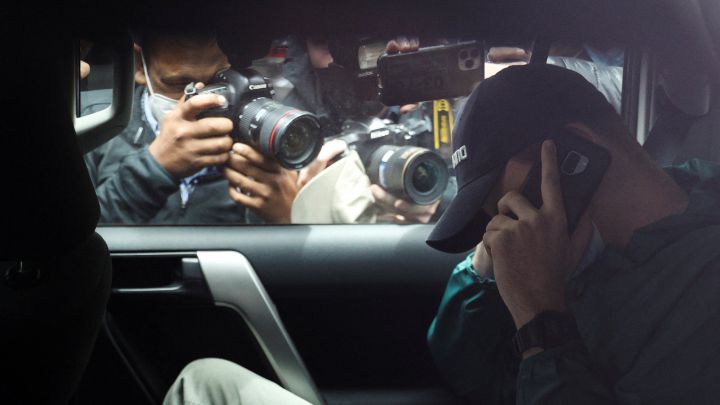
Australian authorities arrested Serbian tennis player Novak Djokovic on Saturday and transferred to a Melbourne hotel that serves as an immigration detention center awaiting Sunday’s court hearing on his possible deportation.
“The Australian Border Force can confirm that Mr Djokovic was detained following the cancellation of his visa,” an official said in an email sent to Efe, specifying that the conditions of his imprisonment respond to the court orders issued on Friday night.
The number one racket in the world thus returns to Hotel Park, where it was already detained between Wednesday of last week when his visa was canceled for the first time due to problems in complying with the requirements imposed by covid-19, and until this Monday, when a judge decided to release him. The case about the entrance to the country of the tennis player, who plans to defend his crown at the Australian Open, coincides with a spike in infections in the southern country linked to the omicron variant.
Prior to his arrest, Djokovic met for several hours and until after noon in Melbourne with his lawyers to discuss the strategy in order to try to reverse the decision adopted the day before by the Immigration Minister, Alex Hawke, to cancel the entry permit for the second time.
At the moment, the conversations between the Balkan and his lawyers have not transpired in the face of the hearing that will be held, urgently, on Sunday at 9:30 local time (22:30 GMT, Saturday) before the plenary session of the Melbourne Federal Court and that will determine his future at the Australian Open.
A risk to Australia
In a 258-page document presented to the court, the Australian immigration minister denounced that Djokovic’s presence constitutes a “risk”. it may “lead to increased anti-vaccine sentiment in the community” which could lead to riots, like those previously reported in Melbourne.
“I have considered the fact that Djokovic is a high-profile unvaccinated person who has publicly indicated that he is opposed to being vaccinated against covid-19,” Hawke wrote in the document made public on Saturday. “Mr Djokovic’s continued presence in Australia may lead to increased anti-vaccine sentiment generated in the Australian community, which could lead to increased civil unrest of the type previously experienced in Australia with rallies and protests.”
Despite this, Hawke admitted that the presence of Djokovic, who according to medical documents recovered from the disease in December, represents a “negligible” risk of spreading the virus. The oceanic country has vaccinated 95% of the target population with the full schedule and is advancing in the booster dose, but thousands of anti-vaccines are reluctant to inoculate themselves with the drug. During the confinements decreed in Melbourne, which accumulates 262 days throughout the pandemic under strict measures by adding six different periods, clashes were recorded between the Police and anti-vaccine protesters.
This Saturday, in front of the sports complex where the Australian Open is held, hundreds of people who refuse to be vaccinated gathered to express their opinion and support the tennis player’s fight. “We want Djokovic to play” and “set him free” were some of the slogans that were shouted amid Australian flags and other banners linked to far-right groups in the country amid a strong police deployment and in which there were no incidents, according to the images broadcast by local media.
Djokovic traveled to Melbourne from Spain on January 5 with a medical exemption for not being vaccinated, having recently been infected with covid-19, although upon his arrival the Immigration authorities canceled his visa and detained him until his release on Monday by court order, considering that he was not treated “fairly”.